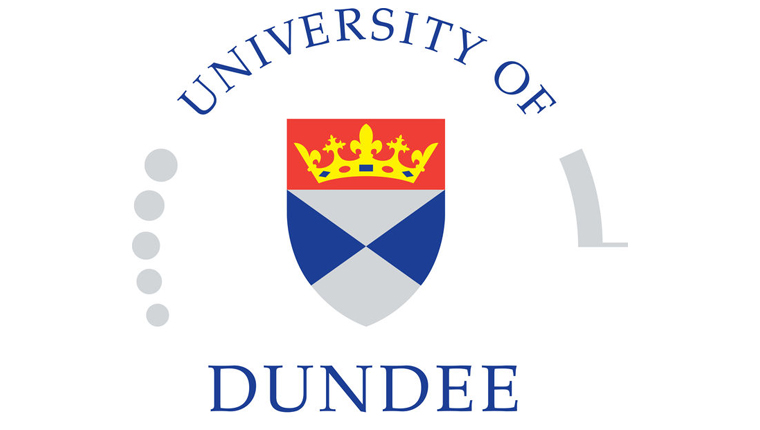
Scottish universities at forefront of €78 million anti-Covid effort
· CARE (Corona Accelerated R&D in Europe) is the largest undertaking of its kind dedicated to discovering and developing urgently needed treatment options for Covid-19
· The initiative is committed to a long-term understanding of the disease and development of therapies for Covid-19 and future coronavirus threats in addition to urgent efforts to repurpose existing therapies for a potential immediate response
· The CARE consortium will accelerate Covid-19 R&D by bringing together 37 teams from academic and non-profit research institutions and pharmaceutical companies into a comprehensive drug discovery engine
The Universities of Dundee and Edinburgh are playing key roles in a €77.7 million pan-European consortium seeking to accelerate the development of therapies for Covid-19 and future coronaviruses.
CARE (Corona Accelerated R&D in Europe) is a 5-year project bringing together the expertise of 37 partners across the continent, as well as China and the US, to form a comprehensive drug discovery engine. The project is funded by the Innovative Medicines Initiative (IMI), a partnership between the European Union and the European pharmaceutical industry.
The two Scottish universities are the only UK-based academic members of CARE, a public-private partnership bringing together scientists from academia, industry and other partners.
The University of Dundee’s world-leading expertise in drug discovery will be deployed in the quest to find antiviral treatments for Covid-19 and future coronaviruses. Using chemical start points identified within the consortium, Dundee’s Drug Discovery Unit (DDU) will work to develop candidate drugs they hope will inhibit the development of the disease.
Professor Paul Wyatt, Head of the University of Dundee’s DDU, said, “We are in the early stage of what will be a long-term fight. The virus that causes Covid-19 can only replicate by taking over the machinery of a host cell. In doing so it prevents the host cell from working properly, causing organ damage. We are therefore looking for candidate drugs that can stop Covid-19 from infecting new cells or replicating once it has infected a cell.”
The University of Edinburgh team is using human cells grown in the lab to look at the actions of SARS-CoV-2 and other common cold coronaviruses to identify proteins that can be targeted by drugs. As there are many clinically available drugs which target human proteins, these can be easily tested against Covid-19, and quickly repurposed if successful. The team will carry out lab investigations of new drugs that have yet to be used clinically. Those that show most promise will go on to be tested in animal studies and eventually clinical trials.
Professor Jurgen Haas, Head of Infection Medicine at the University of Edinburgh, said, “Covid-19 is a global problem that requires a global solution. By working with many other organisations across the world, we hope to reduce the time needed to develop a new treatment for this disease.”
With no licensed vaccines and only limited therapy options, more Covid-19 cases and deaths are recorded every day. Uniting some of the most innovative and experienced scientists from all relevant areas in a unique collaborative spirit, CARE will accelerate the path to providing solutions for the current pandemic as well as future coronavirus outbreaks. After testing in the laboratory, the project will advance the most promising drug candidates to clinical trials in humans.
CARE is supported by IMI to accelerate the discovery and development of urgently needed medicines to treat SARS-CoV-2, the virus that causes Covid-19. It is funded by cash contributions from the EU as well as cash and in-kind contributions from eleven European Federation of Pharmaceutical Industries and Associations (EFPIA) companies and three IMI-Associated Partners.
Professor Yves Lévy, Executive Director of the VRI-Inserm and CARE coordinator, said, “The COVID-19 pandemic has emerged as the largest global health threat to humanity in this century, requiring the global scientific community to join forces in unprecedented ways.
“Beyond the scientific excellence of the different teams involved in this very ambitious project, CARE is bringing together 37-partners in an alliance pooling their expertise and know-how around an ambitious 5-year work plan to develop therapeutics against the current COVID-19 pandemic. We are very grateful for the financial support provided by the Innovative Medicine Initiative that will enable us to implement this plan.”
Dundee’s Drug Discovery Unit (DDU) was previously awarded €5 million by the COVID-19 Therapeutics Accelerator, initiated by the Bill & Melinda Gates Foundation, Wellcome and Mastercard, to develop antiviral treatments. This award forms Dundee’s in-kind contribution to CARE as an Associated Partner within the consortium and will be matched by the IMI to enable other scientists within the consortium to help identify novel anti-coronavirus agents.
Exscientia, a University of Dundee spin-out company leading the world in AI-driven drug discovery and design, is also a member of the CARE consortium and will work closely with the DDU in this consortium.